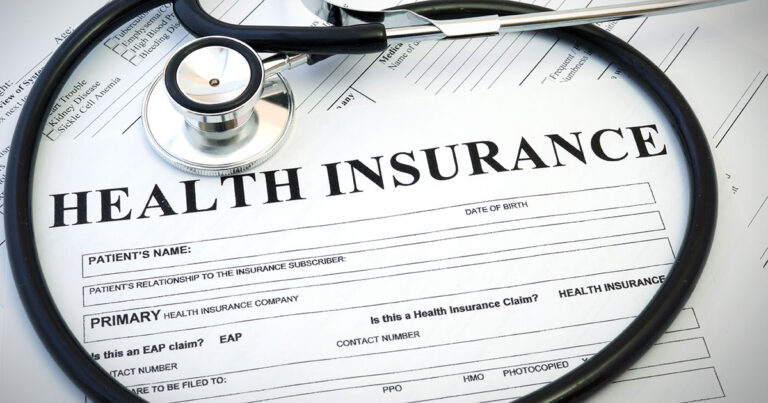Vision Insurance: Perfect Ways to Protecting Your Eye Health and Saving on Costs
Vision insurance is designed to reduce the cost of eye care and make it easier for individuals to maintain healthy eyesight. While many people assume it only covers eye exams or glasses, a good vision insurance plan often includes a wide range of benefits that can help you protect your vision, detect early signs of diseases, and manage eye health over time.
Eye care is just as important as regular health checkups. Vision problems can develop gradually, making them easy to overlook until they become serious. By having vision insurance, you gain access to professional care, early detection of conditions, and cost savings on essential services.
In this guide, we will explore everything you need to know about vision insurance, including what it covers, its benefits, how to choose a plan, and tips for maximizing your coverage.
What Does Vision Insurance Cover
The type of coverage you get will depend on the plan you choose, but most vision insurance policies provide benefits across several important areas of eye care.
Routine Eye Exams
Regular eye exams are the starting point for maintaining good eye health. They do more than just check your vision. They can detect changes early and sometimes reveal health issues such as glaucoma, cataracts, or even systemic conditions like diabetes and high blood pressure. Most insurance plans will cover the cost of one exam each year or every two years, making it easier to stay consistent with your checkups.
Prescription Eyewear
Vision insurance usually helps cover the cost of glasses, contact lenses, and prescription sunglasses. Some plans provide a fixed allowance that you can use toward your purchase, while others offer discounts. This coverage helps offset what can often be a big expense, especially if you need specialized lenses or designer frames.
Lens Enhancements
Modern eyewear goes beyond standard lenses. Many vision insurance plans now include coverage for enhancements such as anti-reflective coatings that reduce glare, blue light filters for screen protection, progressive lenses that replace bifocals, and scratch-resistant coatings to keep lenses durable. These upgrades can make your glasses more comfortable, more effective, and longer lasting.
Contact Lens Fittings
For people who prefer contact lenses, insurance often covers the cost of fittings and evaluations. These visits ensure that lenses match your prescription and sit comfortably on your eyes. This benefit can be especially valuable since poorly fitted lenses may lead to discomfort or even eye infections.
Screening for Eye Diseases
Some policies include screenings for serious conditions like macular degeneration, diabetic retinopathy, and glaucoma. Detecting these issues early is critical for preserving long-term vision and avoiding costly treatments later.
The Benefits of Having Vision Insurance
Vision insurance goes far beyond saving money on glasses or contacts. It can have a direct impact on your health, comfort, and overall quality of life.
Early Detection of Health Issues
Your eyes can act as windows into your overall health. An eye exam might reveal signs of high blood pressure, diabetes, or even neurological conditions before you experience noticeable symptoms. Catching these early can make a major difference in treatment outcomes.
Improved Quality of Life
Good vision helps you work, drive, read, and enjoy hobbies with ease. Addressing vision problems can reduce headaches, minimize eye strain, and allow you to live more comfortably and productively every day.
Affordable Access to Eye Care
Without insurance, paying for exams, glasses, or contacts can quickly add up. Vision insurance makes these services much more affordable and encourages people to keep up with regular visits instead of postponing them due to cost.
Encourages Preventive Care
When you know that your plan covers routine visits, you are more likely to schedule them. This habit of preventive care means that problems get identified earlier, which leads to simpler and more cost-effective treatments.
How to Choose the Right Vision Insurance Plan
Selecting the right vision plan requires some comparison and research. Here are the most important things to think about before enrolling.
Network of Providers
Look at the provider network included in the plan. Having a wide selection of optometrists and ophthalmologists nearby makes it easier and less costly to use your benefits. Staying in network usually lowers your out-of-pocket expenses.
Coverage for Eyewear
Examine what type of allowance or discount the plan provides for glasses and contacts. Some are more generous, which can save you significant money if you prefer premium lenses or branded frames.
Frequency of Benefits
Plans vary in how often you can use certain benefits. Some cover new glasses every year, while others only allow it every two years. If your prescription tends to change often, a plan with yearly coverage may be worth the extra cost.
Premiums Compared to Savings
Weigh the cost of monthly premiums against what you expect to save each year. A solid plan should help you save more on exams and eyewear than you pay in premiums.
Additional Perks
Certain plans come with added bonuses, such as discounts on elective procedures like LASIK. While these are not essential, they can add value if vision correction surgery is something you might consider in the future.
How to Maximize Your Vision Insurance Benefits
Having vision coverage is one thing. Knowing how to get the most out of it is another. A little strategy goes a long way.
Schedule Exams on Time
Do not let your annual or biannual exam go unused. Staying consistent with checkups helps maintain your vision and ensures early detection of potential health concerns.
Use Your Full Eyewear Allowance
If your plan includes an allowance for glasses or contacts, make sure to use it fully. Even if you do not urgently need new glasses, you could purchase prescription sunglasses or a backup pair.
Take Advantage of Discounts
Many insurers give extra savings on additional eyewear or specialty lenses. These discounts can be helpful if you like to keep multiple pairs of glasses or need more advanced lens features.
Know Your Renewal Date
Understanding when your benefits reset allows you to plan smartly. You can time purchases around the renewal to make sure you do not lose any unused benefits.
Check for Wellness Programs
Some providers offer wellness resources that include guidance on eye health, diet, and digital screen use. These resources can add extra value to your coverage and support long-term care.
The Cost of Vision Insurance
Compared to most health coverage, vision insurance is typically very affordable. Premiums can be as low as just a few dollars per month, with more comprehensive plans costing slightly more.
The real savings show up when you compare the premiums to the costs of care without insurance. For instance, a standard eye exam without coverage may cost between 50 and 250 depending on your location and the type of specialist. Prescription glasses can range from 100 to over 400. Contact lenses may cost several hundred dollars each year depending on the type. When you add those costs together, it becomes clear that vision insurance can quickly pay for itself.
Who Needs Vision Insurance
Vision insurance can benefit just about anyone, but some groups find it especially valuable. Families with children often need coverage because kids’ prescriptions can change frequently as they grow. People with existing eye conditions require regular monitoring, which insurance helps cover. Adults who wear glasses or contacts save money on ongoing costs, and older adults who are at greater risk for age-related eye diseases benefit from routine screenings. Even people with no current vision problems can benefit because exams often detect hidden health concerns.
Common Misconceptions About Vision Insurance
There are a few myths that keep people from signing up for vision coverage. One common misconception is that it only pays for glasses. While glasses are covered, most plans also include exams, contact lenses, screenings, and sometimes surgical discounts. Another myth is that vision insurance is expensive, but in reality, it is one of the most affordable forms of health coverage. Finally, many people assume that if their eyes are healthy, they do not need insurance. The truth is even people with perfect vision should get regular exams because they can reveal hidden health issues early.
Final Thoughts on Vision Insurance
Vision insurance is more than just a way to save money on glasses. It is a tool that encourages preventive care, ensures access to quality eye exams, and helps detect serious health issues early. Whether you have perfect vision or rely on corrective lenses, the benefits of having vision insurance go far beyond the financial savings. By choosing the right plan and making full use of your benefits, you can protect your eyesight, improve your quality of life, and enjoy peace of mind knowing your vision care is covered.






